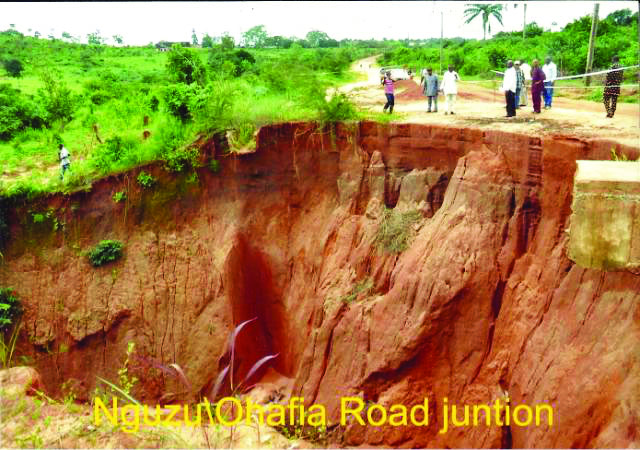Five states from the Southeast geo-political zone and nine other States are current beneficiaries of N12billion World Bank funding scheme to curtail the spread of gully erosion in the country, the Nigeria Erosion and Watershed Management Project (NEWMAP) has disclosed.
The National Project Coordinator, NEWMAP, Mr Salisu Dahiru, made the disclosure on Tuesday in Calabar at a five-day workshop for organised by the Federal Ministry of Environment in conjunction with the World Bank and other partners for stakeholders on the successful implementation of Nigeria Erosion and Watershed Management Project (NEWMAP).
Dahiru disclosed that about 21 badly affected gully erosion sites have been identified in the country and currently being addressed through the project.
He listed the affected and beneficiary states to include the five erosion-prone states in the Southeast: Abia, Anambra, Ebony, Enugu and Imo as well as other states like Cross River, Delta, Edo, Gombe, Kogi, Kano, Oyo and Sokoto. “About $500 million had been earmarked to tackle the 21 gully erosion sites out of which 480 million have been devoted for remediation of the gully sites. At the initial stage, NEWMAP had targeted to work with seven states but the Federal Government recently approved seven more states where gully erosion had also reached alarming stage,” he said.
Mr. Dahiru noted that findings had shown that the vast cases of land degradation that had developed into full blown gully erosion sites were caused by human activities through the wrong dumping of waste products and felling of tress. “The entire country is overwhelmed with thousands of gully erosion sites. This is because in the last 20 or 30 years, we have not had the opportunity of addressing this problem and that is what NEWMAP is addressing,’’ he said.
According to him, infrastructure and the livelihood of the communities living around the affected areas, particularly in the south eastern part, are being threatened by gully erosion. “Attempts have been made to address these problems and it involves huge amount of money. The government of Nigeria had to approach the World Bank for support to arrest the issues,’’ he said.
By Olisemeka Obeche (with agency reports)
[divider]


